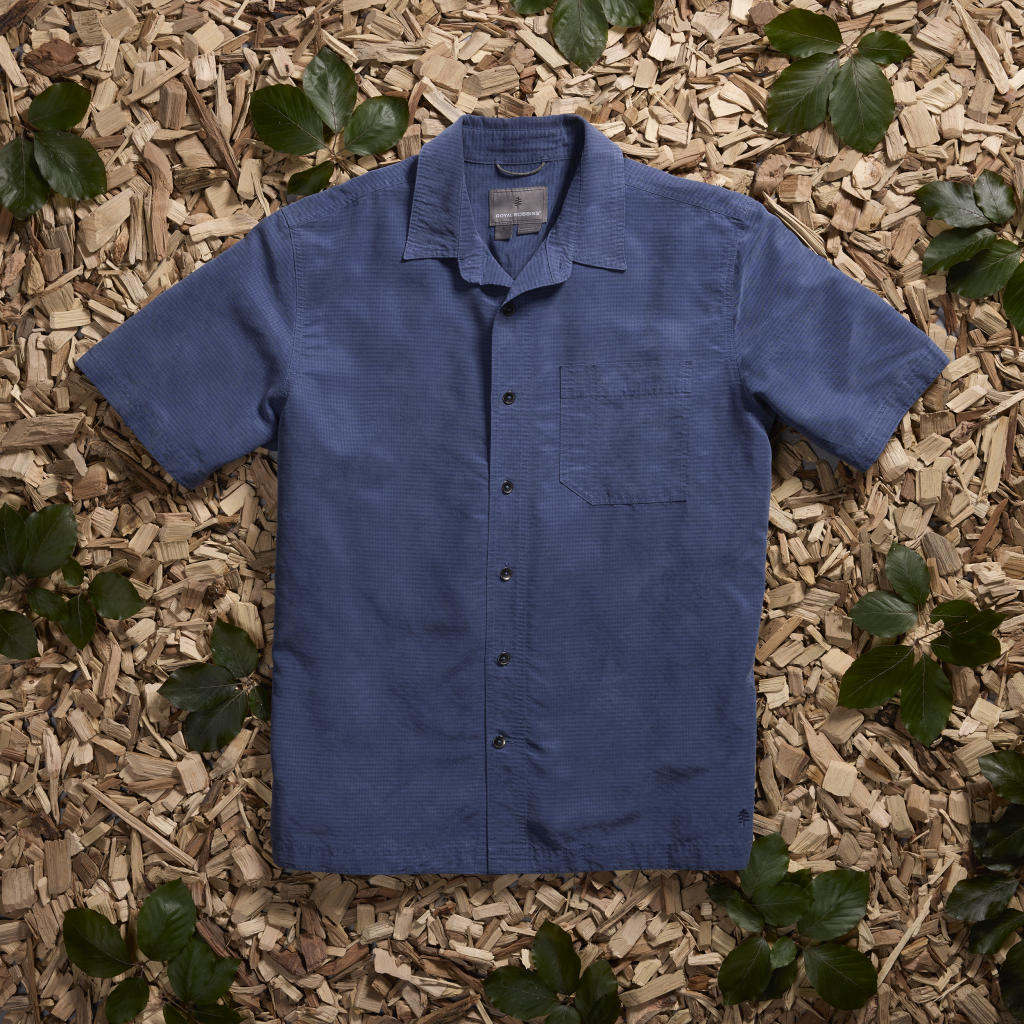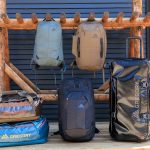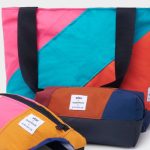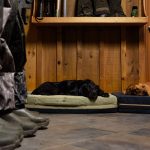San Francisco (July 8, 2024) – Since 1968, outdoor adventure apparel brand Royal Robbins has been dedicated to protecting the environment. The brand’s commitment to continuous improvement is visible in setting and achieving goals for use of lower-impact fibers. In 2023 the brand reduced overall emissions by 37% compared to the 2019 baseline and achieved its annual Scope 3 emissions reduction targets per product – down by 22% from 2022.
Since material production makes up the largest portion of a product’s environmental footprint, Royal Robbins carefully selects lower-impact fibers to help reduce waste, chemical use, water use, and greenhouse gas emissions. Establishing a new sustainability milestone for the brand, 87% of styles for Spring 2024 are made from materials that contain 50% or more lower-impact fibers: preferred cotton, recycled polyester, preferred forest materials, hemp, or recycled nylon.
 Inspiring adventurers around the world to consider the impact of their purchase, specific highlights from the materials in Royal Robbins Spring 2024 collection are:
Inspiring adventurers around the world to consider the impact of their purchase, specific highlights from the materials in Royal Robbins Spring 2024 collection are:
- Royal Robbins #1 adventure shirt, the Desert Pucker, is certified as carbon neutral by Climate Partner through financial climate contribution. This cool, comfortable shirt is made with wood-derived TENCEL™ Modal fibers and is the cornerstone of the brand’s continuous efforts to create the best natural fibers performance wear in the world. 100% of forest fibers used in Royal Robbins styles are FCS- and PEFC-certified.*
- This season, Royal Robbins introduced recycled nylon into the line. 41% of nylon-based styles, including the heritage-inspired Merced basecamp essentials, are made with recycled nylon.
- 97% of cotton-based styles** are made with preferred cotton (including organic cotton), grown in partner programs with farmers to help reduce environmental impact through improved water, land, and chemical management practices.
- The brand expanded the use of recycled materials with 74% of polyester-based garments made from recycled polyester, including the climber-tested-and-approved men’s and women’s Amp Lite performance shirts.
- Royal Robbins expanded its undyed colorway, including the women’s Basecamp Tee, Basecamp Boxy Tee, and Half Dome styles. Undyed uses up to 80% fewer kilowatt-hours (kWh) energy, 80% fewer liters of water, and 75% fewer chemicals than a traditional piece dyeing process.
- Wool is the original natural performance fiber, and a staple at Royal Robbins since Liz and Royal’s lived in Yosemite’s Camp 4. In Fall 2023, the brand began using Responsible Wool Standard certified wool and underwent certification by Control Union cert. 895314. Royal Robbins will expand that commitment, with 89% of its Fall 2024 wool-based styles crafted with traceable wool.
“The concept of sustainability is deeply ingrained in this brand, conceived by two iconic climbers in Yosemite,” said Erik Burbank, Royal Robbins brand president. “It’s a journey that started with the revolutionary concept of ‘clean climbing’ and has since grown into the challenge of creating gear for adventurers while minimizing the negative impacts of our business. While recognizing the progress we have made, we are conscious of the need to do more. This journey is a formidable one that requires our commitment to continued and constant improvement.”
All these initiatives support Royal Robbins reaching its 2025 climate goals. By 2025, the company has set a target to reduce 40% of its emissions in the company’s owned and operated locations (including offices and warehouse locations). By 2025, Royal Robbins also has a target of 50% reduction in emissions per product produced (considering categories, purchased products & services, and transport & distribution).
Additionally, Royal Robbins aims to keep using lower-impact alternatives to conventional fibers, with targets that include:
- 80% recycled or bio-based polyester by 2025
- 100% preferred cotton by 2025
- 100% FSC or PEFC-certified man-made cellulosic by 2023 (goal met in 2022)
- 50% certified, traceable wool by 2025 (goal met in 2023)
To learn more about Royal Robbins sustainability initiatives, please visit: royalrobbins.com/us/en-us/explore/sustainability








